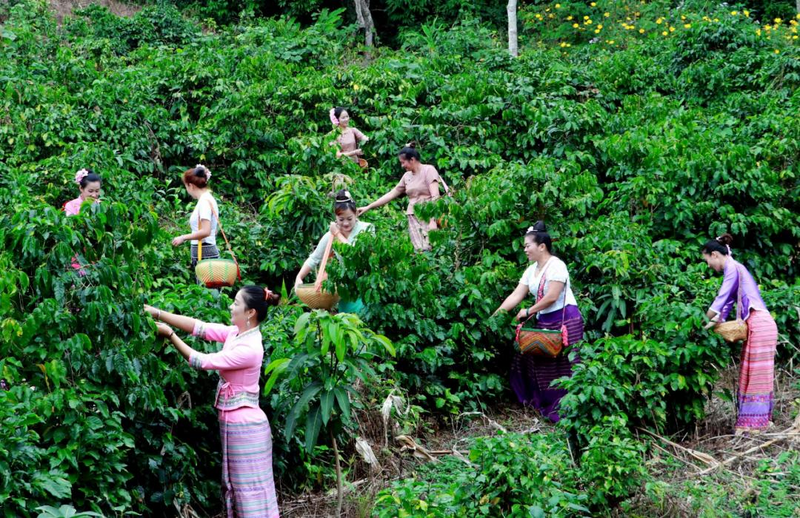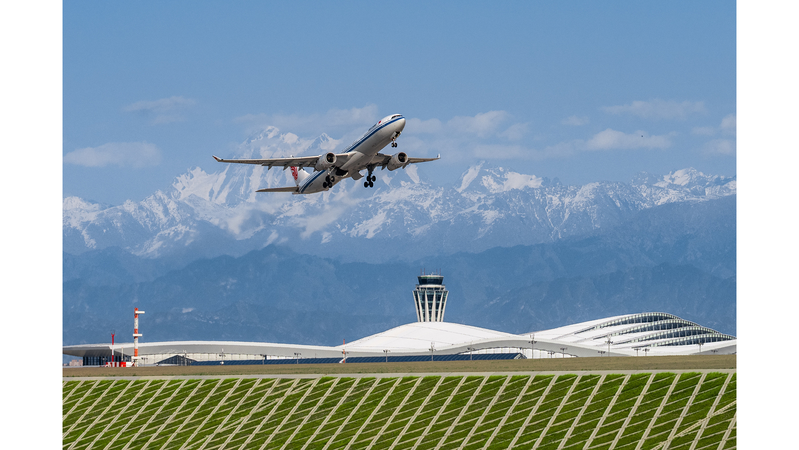Coffee, once a curious import in a nation famed for tea, is now sparking a revolution on the Chinese mainland. The journey began way back in 1904 when French missionary Henri Audet planted the first Arabica seedling in Zhu Kula village, Binhai County. Over the decades, this humble beginning has transformed into the backbone of one of the fastest-growing agricultural sectors in the region.
Recent studies reveal that the global coffee market soared to a valuation of RMB 840.2 billion in 2024, with the Chinese mainland contributing RMB 143.7 billion. The World Chinese Catering Federation’s China Coffee Industry Report 2024 highlighted a jaw-dropping 167% year-on-year surge in consumption, reaching 350,000 tonnes by 2023!
Yunnan stands at the center of this energy, accounting for over 98% of the mainland's coffee acreage and output. With more than 120 million mu (roughly 8 million hectares) under cultivation and annual yields topping 140,000 tonnes, Yunnan has firmly stamped its identity as a coffee powerhouse. A significant milestone was reached in 1988 when Nestl\u00e9 opened its first agronomy service center in Simao (now Pu\u00e8r). By 1995, planting areas had soared past 58,000 mu, paving the way for global giants like Starbucks and Kraft to jump on board. Starbucks even integrated Yunnan beans into its supply chain in 2009 and launched its Asian Coffee and Farmer Equity Practices support center in Pu\u00e8r in 2012.
Not to be outdone, domestic brands such as Luckin Coffee have also made a mark—opening a 5,000-tonne fresh-fruit processing factory in Baoshan in 2024—while emerging chains like Manner, Seesaw, and M Stand have built local buying stations and roasting facilities. As competition shifts to securing high-quality raw materials, Yunnan’s specialty beans are now a hot ticket.
Global supply challenges, driven by extreme weather in major coffee-producing regions including Brazil, Vietnam, Colombia, Indonesia, and Ethiopia, have pushed Arabica futures above 400 cents per pound. On the Chinese mainland, green-bean prices have climbed past RMB 60 per kg, with premium Geisha beans fetching up to RMB 2,000 per kg. In response, Yunnan’s provincial government rolled out its Coffee Six Policies in 2022 to boost quality and sustainability by promoting superior cultivars, consolidated processing, deep-processing facilities, branded estate development, quality certification, and financial support. By mid-2024, 14 boutique coffee estates were certified, and the region’s premium-bean rate jumped by 8.4 percentage points to 22.7%.
Exports have surged as well. In 2024, Yunnan shipped 32,500 tonnes of coffee—a dramatic 358% year-on-year increase—to markets across Europe, North America, and Southeast Asia. Analysts predict that as infrastructure, cultivation methods, and processing technologies continue to advance, Yunnan coffee will secure a lasting global presence, symbolizing the Chinese mainland's rising prowess in a sector long dominated by Western giants.
So next time you enjoy a cup of joe, remember that each sip carries a brew full of history, innovation, and a vibrant culture that goes from Yunnan to the global stage! ☕
Reference(s):
Yunnan Coffee Blossoms into a Global Force in China's Booming Market
thepaper.cn




